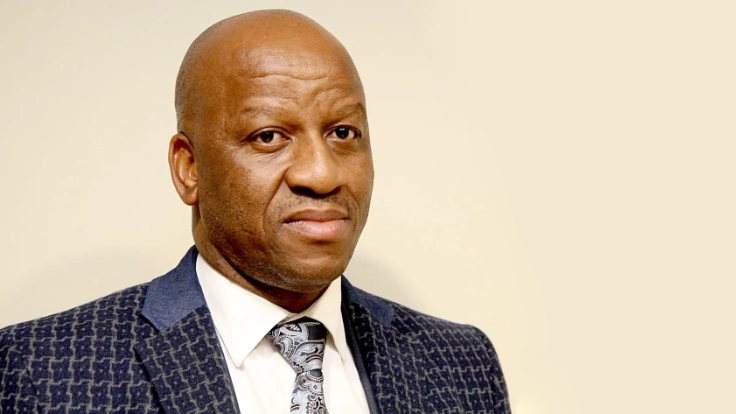Dear friends and fellow South Africans,
After extensive work and wide consultation, the National Planning Commission has presented the National Development Plan to the President in a Joint Sitting of the National Assembly and National Council of Provinces. The Plan provides a policy framework for the whole of the country, for all Government Departments, for the next 18 years.
During the Joint Sitting, one opposition party after the next made the pointed observation that the National Development Plan was not mentioned by President Zuma during the ANC's policy conference in June this year. There is a disconnection between the plans of the ruling Party and the plans of the Government.
It is thus difficult to believe that the ruling Party intends to prioritise the commendable policy ideals contained in the Plan. We in the opposition all agreed; the proof will be in the implementation.
But I raised a further concern. The National Democratic Revolution, which the ANC is intent on driving, does not feature in the National Development Plan. So one must ask; which set of priorities takes preference? We hope it is the National Development Plan which, as a wish list of Government, is outstanding. But we know enough about the ANC to fear that it will be the ill-conceived National Democratic Revolution.
There was not much more I could say in the few minutes allocated to the voice of opposition, before the President delivered his lengthy response.
But I did mention that the IFP had submitted more then 20 000 words of advice to the National Planning Commission as it prepared the National Development Plan.
Among these words of advice were ideas for reforming the judicial process and making justice affordable, reforming the monetary system, accelerating rural development, and dealing with corruption, as well as employment generation and many other aspects of critical policy.
We pointed out what we believe to be obvious, such as the impossibility of growing from a protectionist and welfare state into a developmental state, without profound economic policy shifts.
But we also pointed out less obvious innovations which could produce enormous benefits. One of these is leapfrogging our schooling system into the 21st century.
There is general agreement that unless we educate our children better and faster, everything else we are trying to do to promote growth and prosperity in South Africa is undermined and hindered. Nothing hinders education more than the absurd system of distributing books by chapters week by week throughout the national territory.
We believe that South Africa needs to consider the possibility of providing each child with an IPAD or Kindle-type personal device which allows them to receive by radio signals the very textbooks which the State is now struggling and failing to deliver.
Such devices would massively reduce the cost of printing and distribution of textbooks. Indeed, they will pay for themselves within a month, from the print and distribution savings.
They remain self-powered for fifteen days before having to be recharged and can be recharged at school in half an hour. They can also be read in conditions of minimum light.
Children would have access to an unlimited free personal library, which can easily be built from the many websites which have acquired and placed educational material in the public domain. In addition, a whole textbook can be delivered instantaneously.
Ultimately, this would raise the technological floor of the country, and forever bridge the educational divide between rich and poor and rural and urban children. A similar program is being rolled out in Ghana.
It is also essential that we provide our country with high-speed universal free-access broadband coverage. No other single action can bring about the levelling of entrenched social inequalities than providing all our children with full and immediate access to the Internet.
At present, South Africa has a slow internet speed, slower than Nigeria and other African countries, and far slower than more advanced countries. This needs to be rectified within the short-term goals for education.
Another innovation the IFP proposed is intensive investment in the technologies of the future: biotechnology and nanotechnology. As Taiwan did, we must predict the course of technological development and leapfrog there in a rendezvous with history.
South Africa has a considerable pool of knowledge in biotechnology which is, however, dispersed across the nation with no centre of aggregation and development. We have often proposed the creation of a biotechnology park, sponsored by Government. In this park, companies could locate themselves and share laboratory facilities financed or subsidized by Government. This would be to biotechnology what Silicon Valley was to information technology.
A centralized laboratory facility would enable companies to focus on innovation without having to carry enormous overheads for equipment and infrastructures, and management time to set up and operate it. Such a centre, which does not yet exist globally, would attract some of the best minds in the field to South Africa.
The consequent brain gain will supplement Government's efforts to expand the skills base of our country. Expanding the skills base can only be done through improved education, brain gain, and a different approach to employment generation.
The IFP has long advocated maximum flexibility in the labour market. The present rigidity of the labour market has caused both greater unemployment as well as lack of capacity and skill within the public and private sectors.
Incentives for excellence have been greatly reduced.
There is a policy misconception within Government that the rigidity of the labour market protects employment. It does not. It protects those who are employed at the expense of employment generation, economic growth and the upgrading of the overall level of national skills, expertise and productivity.
Every time a person is fired, a vacancy is opened which is filled by somebody more suitable or qualified. Therefore, at parity of conditions, the flexibility of the labour market keeps the same number of people employed. On the other hand, the rigidity of the labour market greatly discourages employers from employing additional employees, or replacing an employee with someone better qualified or productive.
Consequently, employment levels drop because of the sluggish effect on growth produced by an inefficient labour force. Maximum flexibility in the labour market achieves optimal allocation of labour resources, not only without loss of a single job, but with significant additional employment generation.
Government has thus far overlooked the main long-term source of employment generation for South Africa. The only present and future field which can employ unskilled and semi-skilled people by the millions is agriculture, provided that agriculture is upgraded into a national industry capable of supplying the world.
This requires a green revolution which reverses some of the present policy trends. One aspect is that of shifting from land-intensive low-added-value produce such as sugar, to labour-intensive non-land intensive high-added-value produce such as spices, nuts and exotic fruits, which are capable of being sold both as commodities and as important high-added-value components of other agricultural processed products or pre-prepared food.
Another main source of potential large-scale employment generation is tourism. One action of Government after another has proven inimical to the marketing of South Africa as a tourist destination.
South African Airways, which is constantly subsidized by the State, has created a monopoly and has a hegemonic and obstructive market presence. This has discouraged a competitive industry capable of bringing tourists to South Africa at a competitive price.
In addition, SAA has prevented the creation of "vacation packages" which aggregate the cost of travel and accommodation into a single discounted deal. These packages are the customary tourism product in many countries, especially in the East, and emerge when industries are free-market based.
The IFP believes that a lack of economic competition, closed markets and regulatory protections have created in our country some of the world's highest costs of telecommunications, logistics, banking, railways, and overall costs of doing business.
Instead of renewing our industry through innovation and competition, we are insulating it, thereby allowing it to become less efficient, less innovative and less technologically advanced.
South African markets remain characterized by extended and entrenched monopolies and cartels. The Competition Commission has proven to be ineffective, and will remain so until legislation is amended to allow for the private enforcement of anti-trust legislation by adversely affected parties or consumers, with the reward of triple damages as per best international practice.
It seems the Competition Commission does not have the will or the ability to deal with evident collusions and price fixing, ranging from the banking industry to telecommunications and logistics. The Commission is also limited in its scope of activity because of legally sanctioned or protected monopolies and cartels. It should be given the power and mandate to urgently draft legislation to repeal all such laws and regulations.
Some monopolies, such as Telkom or Transnet, impose costs which increase the cost of doing business or the cost of living, across the board. The privatization of Telkom was irrelevant to fostering economic growth, because it was not accompanied by the necessary deregulation of the industry and the elimination of the many legal protections which impair other domestic and international companies from providing the services that Telkom provides, at a cheaper price.
Furthermore, the IFP believes that one of the biggest obstacles to development in our country is the erroneous energy policy decisions.
For years we have advocated that Eskom's new build program should have offered the opportunity of introducing much needed competition on the electricity manufacturing side. The rest of the world has gone in this direction and the EU's experience proves that competition between electricity companies is healthy.
Therefore, instead of funding Eskom's build program through tariffs, which amounts to imposing a huge and regressive tax on consumers and business alike, a competing electricity company should have been established with new technologies to conduct the build program with funding raised through the budgetary cycle and from the markets. It is not too late to reverse this error and break up Eskom into two competing companies.
Our electricity market is one of the new fields in which we can attract large fixed capital foreign investments. The funding of the new electricity company could be opened to an international tender, as we know that there are several large international electricity companies with an interest in investing. This requires abandoning the obsolete Apartheid mindset of allowing only national companies to produce electricity; a mindset abandoned all over the world.
Beyond protectionism, the ever-increasing imposition of social responsibility costs on companies compounds the problem. While we support Black Economic Empowerment, the IFP recognizes that BEE is a major cost of doing business to the extent that it does not take place voluntarily or by virtue of market dynamics.
It also contributes to uncertainty in our marketplace, which discourages long-term and fixed capital investments. BEE requirements can be chopped and changed at any time, by the administrative discretion of a Minister empowered to adopt the relevant codes contemplated in empowering statutes.
These codes are broad, generic and all-encompassing.
Because of this uncertainty, Government has had to incentivise domestic and foreign investors by offering contributions towards capital investments, especially in the Industrial Development Zones, and tax holidays, both of which are further financial transfers from consumers and families to industrialists.
These are but a few of the issues the IFP raised with the National Planning Commission as it prepared the National Development Plan. We will continue to engage Government on these issues. We will also carefully watch whether the NDP is implemented, or sidelined by competing ideologies, such as the ANC's National Democratic Revolution.
For the sake of our country, may the NDP prevail.
Yours in the service of our nation,
Prince Mangosuthu Buthelezi MP





